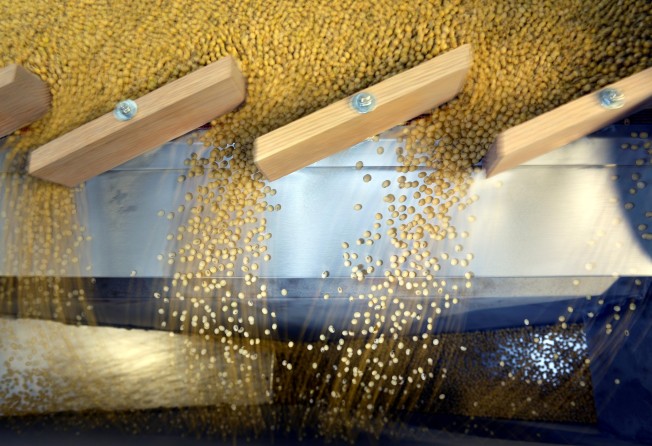Chinese farmers need lifeline to ride out wave of US imports in trade war deal, agribusiness tycoon says
- New Hope Group chairman calls for central government subsidies to upgrade agriculture sector

The Chinese government needs to improve its fiscal and industry policies to protect domestic producers expected to be squeezed by higher imports of US agricultural products, according to agribusiness tycoon Liu Yonghao.
“More imports of soybeans and corn will help reduce the cost of raising livestock, but Chinese farmers, and the animal feed industry in China will definitely be under pressure,” Liu said on the sidelines of the Chinese People’s Political Consultative Conference on Sunday. “Agriculture in the United States is much more efficient than in China and they will have the upper hand.”
Liu, the 67-year-old billionaire chairman of China’s New Hope Group and a CPPCC member, runs the country’s biggest agriculture conglomerate. Each year, the company produces around 20 million tonnes of animal feed and processes 1.3 billion chickens and eight million pigs, according to its website.
His comments echo concerns about whether China can maintain a balanced farming structure to ensure food security as it prepares to buy more American farm products as part of concessions to end the country’s long-running trade war with the United States.
In a meeting late last month, Chinese Vice-Premier Liu He and US President Donald Trump agreed that China would buy an extra 10 million tonnes of US soybeans. China has also proposed buying an additional US$30 billion a year of US agricultural products including soybeans, corn and wheat, on top of pre-trade war levels, Bloomberg reported.
This was reflected in the central government’s first policy statement of the year, in which it called for greater and more diverse imports of agricultural products.
“More imports will bring both opportunities and challenges,” Liu said. “But in short term, the agriculture industry in China will be under relatively big pressure … We have no idea how this [more imports] will last, the government must have tried a lot to protect our own system.”
He said the government could offer farmers and companies more subsidies to help them upgrade production.
But subsidies are a vexed issue, with the World Trade Organisation ruling on Thursday that China exceeded internationally agreed-upon standards for domestic support of rice and wheat farmers, allowing Chinese farmers to artificially deflate prices of the crops around the world.
The original complaint, filed by the Office of the US Trade Representative in 2016, accused China of exceeding standards for domestic support of wheat and rice farmers by as much as US$100 billion. China reportedly argued that only grain bought by the government should be counted towards the WTO limits.
Trump said on Twitter on Saturday that he had asked China “to immediately remove all tariffs on our agricultural products”.
Last year in retaliation for US duties on Chinese goods from food to smartphone equipment, Beijing imposed tariffs on imports of US agricultural goods, including soybeans, sorghum and pork, cutting shipments of those goods to China.
China imported 135,814 tonnes of US soybeans in January, almost double the December figure but a fraction of the 5.8 million tonnes brought in a year earlier, according to Chinese customs data.